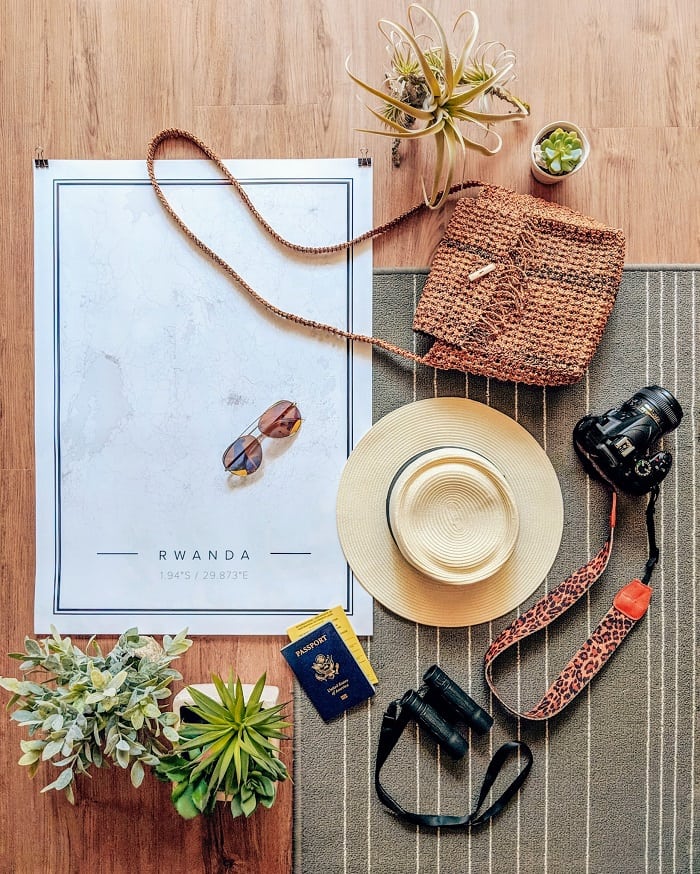
Last July, Harrison and I went to Rwanda. If you don’t know where that is, I don’t blame ya!
It’s a tiny country in East Africa nestled between Tanzania, the Democratic Republic of the Congo, and Uganda.
When planning travel to Africa, you might be fraught with anxiety and immediately want to turn to a travel agent.
But I can assure you- a lot of international travel can easily be planned on your own!
If you’re like me, you want to be in control (I think it’s my weakness). I’m totally a type A planner.
I want to find the best deals, read all of the reviews, and carefully plan every detail of my trip.
Here are fourteen things to know when planning your trip to Africa.
** I’m basing this off of our Rwanda trip, but I’ve really tried to think this through as best I can to apply to almost all African countries**
1. Safety
I think the number one thing to research before traveling anywhere in Africa is the safety.
Know what the current conditions are like so that you are prepared for your trip.
When we visited Rwanda, we were pleased to learn that it is one of the safest countries in Africa. Of course, even so, you should be street smart.
Something helpful for any international travel is a money pouch to store your passport and money in (especially when in a heavily cash-based society).
2. Vaccinations
A lot of countries in Africa require vaccinations. You show proof of vaccinations at border crossings, and without them, you could potentially be turned away.
You can easily look up what vaccinations are required on the embassy page for your country.
To then get the necessary vaccine, call your local Walgreens to check what they supply. Some vaccinations are really rare, so you might need to get them in advance.
When I was getting my Yellow Fever vaccination, almost everywhere in Dallas had run out because of an issue with the manufacturer!
So plan ahead and get those shots early on.
The most common vaccinations you’ll want to get are Hep A & B, tetanus (for your own safety), and Yellow Fever.
Malaria pills are also almost always necessary if you’re headed to East Africa.
3. Visas
You’re not getting anywhere without a visa if your country requires one! Check online for visa requirements.
Can you imagine flying for 20 hours to then be turned away?
That is a nightmare I never want to experience.
Some countries require advance visas, some require online visas, and some you can get once you reach the airport.
That was the case when we visited Rwanda- you just pay $30 when you arrive and fill out the necessary information.
4. Tour guides & safaris
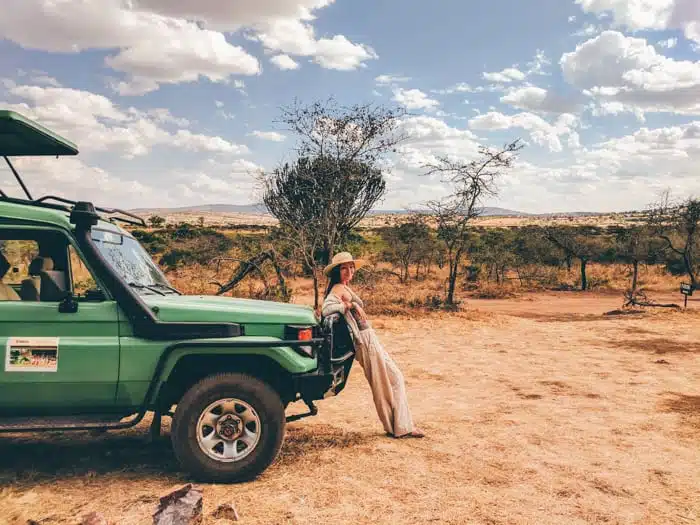
If you’re headed to Africa, chances are you want to go on a safari.
You just can’t miss this once-in-a-lifetime adventure.
Safari requirements vary from place to place, but it is honestly one thing you will want to work with a tour group on.
Shop around online before choosing whichever company you’d like to join. Definitely compare prices– some places have crazy marked-up rates, while others are fair.
5. Getting around
Check ahead to figure out if you can rent a car, if it’s safe to drive around on your own, how available taxis are, etc.
A lot of times, taxis can be the easiest mode of transport, but some areas won’t have any at all!
In that case, you should be prepared with local transportation information.
How reliable are the buses? How much does it cost? Do they go where you want to go?
When we were getting around Rwanda, taxis were easy in Kigali. However, when traveling 2+ hours, we had the option to take a local bus or get a rental car.
6. Car rentals
If you’re going to rent a car, make sure you read about local driving beforehand.
We went to Rwanda with a car reservation booked, but after being there for a day and seeing the madness of Kigali driving, we requested a driver.
I do highly recommend getting a driver. Our car rental and driver was insanely cheap compared to US prices, and the car rental experience was so easy.
The biggest benefits of a driver are that they speak the language and can translate, they know the traffic rules, and know the areas very well.
7. Permits
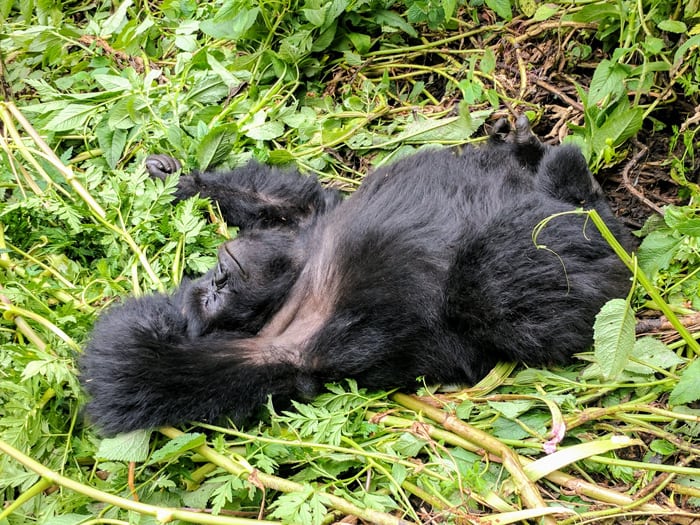
Know beforehand if you need any permits for trekking, safaris, etc.
In Rwanda, this is crucial for gorilla trekking. You get a permit online well in advance since the treks book up very quickly.
8. Money
Plan your money- how much do you want to keep on you at any given time? How many dollars do you want to bring to exchange?
In order to figure this out, think about how much you will spend on food each day, how much on transportation, how much on activities.
Do places accept credit cards? You’ll want to factor that in (major hotels usually accept credit card).
In this part of your planning, you can figure out typical costs for things, and that way you avoid getting ripped off.
(I actually made a cost spreadsheet for our Rwanda trip, you can see it in my article here.)
9. Customs & culture
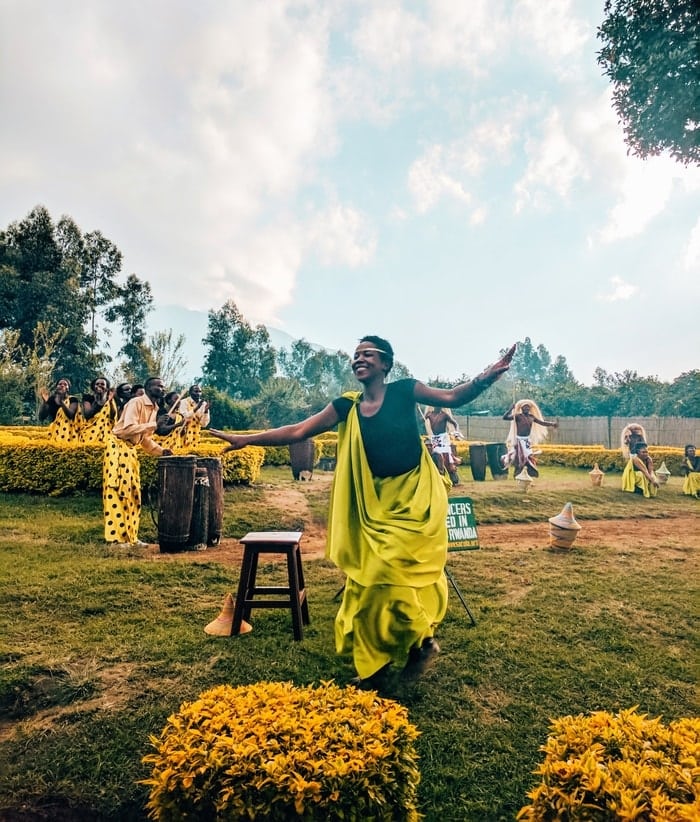
Everywhere you go, you should respect the native culture. That means learning about the traditions and behavior where you are going.
Remember that you are a guest in the country you are visiting.
Just as you wouldn’t want to go to a friend’s house and make them feel uncomfortable due to your behavior, you don’t want to offend the country welcoming you in.
Research the religion, history, traditions, and more.
One way I saw this put into action: in Rwanda, the country was shattered after the 1994 genocide.
Now that piece of their history is ingrained within every soul there- and it would be insensitive to ask someone which tribe they belonged to, for example.
Another example: in Rwanda, once a month there is mandatory community service. While tourists aren’t expected to participate, knowing this in advance would help you understand why everything was closed on that day.
10. Attire
Respecting culture includes being respectful through your attire. In a lot of African countries, you’ll want to cover your legs (the length depends on the country).
Some Muslim countries will be even more strict, and some countries will be more relaxed. Just do the research beforehand!
Besides the local customs, you’ll want to think about special attire and gear you need to bring for specific activities. (Don’t forget binoculars, hiking boots, a rain jacket if you’re in a jungle, etc.)
11. Hotels
Look up hotels by location and reviews. Those are probably the two biggest factors to consider when booking your trip to Africa.
I use booking.com to make my reservations because I can sort by reviews, location, and price.
That way you know what to expect- you’ve seen photos and have read what people have said.
12. Water
If it’s your first trip to Africa, you might not be aware of the unsafe water quality throughout the continent.
Research your country for water guidelines– in almost every case, you’ll need to brush your teeth with bottled water.
13. Flights
When booking flights to Africa, the best time to book is around four months in advance (source here).
I looked four months in advance for our flight to Rwanda and checked every day for two weeks. The price jumped up once, and we booked as soon as it went down again.
14. Languages
It’s always nice to be prepared with common phrases in the local language. Not only does it help you understand when someone is greeting you, but it also shows your effort to learn the local culture!
Best phrases to know: hi, bye, thank you, good morning, how are you, good, see you later, help, sorry, I don’t understand, and pardon me.
And the good thing about living in this day and age is that we have so much information available at our fingertips!
Planning travel is easier than ever!
So go ahead and research the above fourteen items before turning to a travel agent!
Have fun and be safe!
Happy travels,
Jasmine
PS. If you liked this article, please share it on Pinterest so that you can save it for later! You can use these pins for easy pinning!

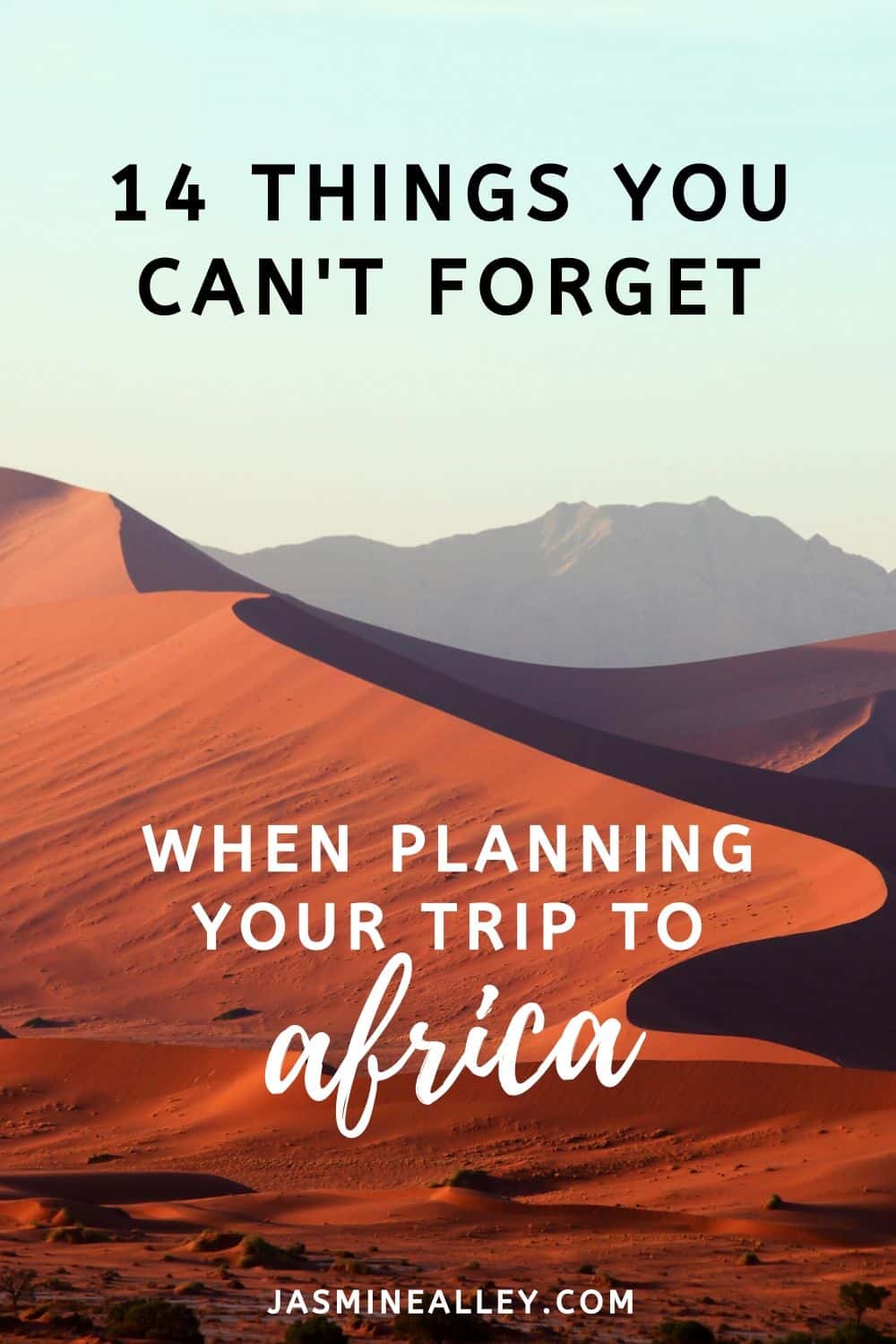













4 Responses
Hi! I don’t know if you were aware but I wanted to let others know that if traveling from the united states to Rwanda you are not required to get a yellow fever vaccine. The only people Rwanda requires to have a yellow fever vaccine are those coming from countries with active yellow fever. Rwanda has not had a single case of yellow fever in over 40 years so unless you are taking a long layover (over 12 hours) in Ethiopia you don’t have to get a yellow fever vaccine. Currently the united states is in a shortage of this vaccine and very few centers have access to it. Though it is free for the travel clinics it will cost you upwards of 400 dollars currently depending on your location. Please be aware of this when getting vaccines for Rwanda and read the World Health Organizations and the Center for Disease Controls recommendations for the country you are travelling to and surrounding areas. If you get your vaccination information from franchised travel clinics like passport health they will misinform you and over charge you; they are also not allowed to prescribe anti-malarial pills. Which is the biggest concern when going to Rwanda and the majority of eastern Africa because it is high risk.
Hi Geri!
Yes I was aware but we had a layover in Kenya and the Rwandan official I was in contact with told us we should get the vaccination just in case!
It ended up being unnecessary after all, but the good thing is that at least it’s good for 10 years!
But you make a great point! Everyone travelling to Africa should research the vaccinations required for their specific country!
Thanks for the comment Geri!
– Jasmine
Hi! I am currently planning a trip to Rwanda and absolutely love your insight! I was wondering what company you used for the gorilla trekking? Also I was wondering how far away the tea plantation was from Kigali? Thank you so much!
Hi Tandy! Thank you! I’m glad you loved my insight!
I actually didn’t go with a company for the gorilla trekking- I did it all myself and got our permits directly from the government! Here’s our gorilla trekking info:
https://www.jasminealley.com/gorilla-trekking/
And the tea plantation is about 2.5-3 hours away from Kigali! It’s easiest to visit it when you’re in Ruhengeri for gorilla trekking, since it’s not as far away from there.